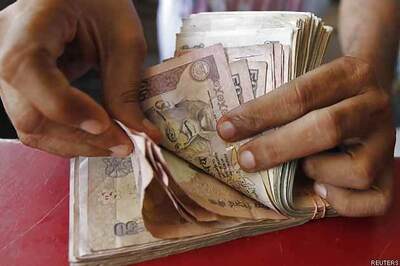
views
In a classic case of misplaced priorities, government data has revealed that there are as many as 709 vacancies for the post of a Sanskrit lecturer in Sanskrit Mahavidyalayas affiliated to universities in the country.
These observations come in the backdrop of massive protests that recently gripped the Benaras Hindu University (BHU) against the appointment of Firoze Khan, a Muslim professor, to the Sanskrit Vidhya Dharma faculty, sparking outrage among students.
According to the numbers cited by the Human Resource Development Ministry, Uttar Pradesh – which became the hotbed of protests – has recorded the maximum number Sanskrit colleges, followed by Odisha at 59 and Rajasthan with 57.
This unusual degree of dissonance emerged after data was tabled in the Lok Sabha on the request of Rajasthan MPs Kanakmal Katara and Ramcharan Bohra, who asked for the “State-wise number of Sanskrit Mahavidyalayas in the country including Rajasthan; The number of vacant posts of Sanskrit lecturers in the Sanskrit Mahavidyalayas affiliated with the University Grants Commission (UGC).”
Efforts to improve
The legislatures asked the government to provide a time frame by when these vacant posts are likely to be filled and list out the efforts made to improve the quality of education in Sanskrit Mahavidyalayas.
The government in response, referred to the UGC letter dated June4, which asked all universities to fill up the vacancies within a period of six months. It added that the UGC sent reminders in July, August, and September.
On the matter of improving the education quality, the government said, “The commission provides Development Assistance and Block Grants to the eligible colleges for infrastructure development and for improving the quality of education in Sanskrit. UGC has also instituted National Eligibility Test (NET) to ensure minimum standards for entrants in teaching and research.”
The lawmakers also inquired about the total amount paid by the government under the UGV grant to
Rajasthan University, Jaipur University and other institutes located in the state under this scheme.
To this, the government said that funds were allocated and released, and that the “grant allocated and released by the UGC under the General Development Assistance Scheme during XII Plan Period (2012-2017) further extended the utilization of grant period up to 31st March 2020.”
After 15 days of sit-in demonstrations, BHU students ended their protests on Friday and vacated the area outside the Vice Chancellor's office and residence. However, they have said they will not return to classes as yet and will engage in other forms of protest. It is also unclear if Professor Firoze Khan, whose appointment sparked the controversy, can start teaching. Locks were opened in the presence of Sanskrit faculty members and students were urged to return to class but they refused to do so.
Samskrita Bharati, an affiliate the RSS, had issued a statement on November 22 and backed Feroze Khan, an assistant professor at BHU's Sanskrit department. Sidelining the protests by ABVP members and other students of the department, it requested Khan to “fearlessly make his contributions at the university.”
The BHU authorities have also come out in support of Khan, saying they do not discriminate on the grounds of caste, class, gender and religion. The protesting students ended their ‘dharna’ on Friday but resumed it on Monday. The university had announced on Thursday that classes at the department would resume, indicating that the stir had ended.


















Comments
0 comment